Table of Contents
Vegetarian proteins include plant proteins and animal proteins that do not contain meat proteins. However, if you have completely eliminated animal sources of food from your diet, do not despair. There is a wide range of plant vegan proteins on the market that will supply you with the necessary amount of protein. In this article, we discuss the individual types of vegan and vegetarian proteins and we describe their differences and advantages. [1]
Plant vs Animal Protein
Animal products such as meat, eggs and milk are naturally high in protein. Protein consists of 20 amino acids, 9 of which are essential. This means that the body is not able to create them by itself and the organism acquires them through diet and nutritional supplements. This makes it easier for people who consume animal products to supplement the daily needs of proteins and essential amino acids. These animal products contain all the essential amino acids and are therefore referred to as complete proteins. [2] [3]
Some plant products, such as soybeans and quinoa also belong to the group of complete proteins. In most cases, however, the plant protein lacks one or more essential amino acids, most commonly methionine, isoleucine and lysine. For this reason, manufacturers mix plant proteins into multi-component products to provide vegans with all the essential amino acids in a single dose. [3] [2] To learn more about the need of EAA, read our article Essential amino acids EAA and their effects, sources and dosage.
Vegetarian Proteins
Vegetarian proteins are basically all milk, egg, but also plant-based proteins. We may include here whey protein, casein, egg protein and plant-based protein powders. The advantage of milk proteins is that they contain all the essential amino acids that plant proteins may not include.
You might be interested in these products:
1. Whey Protein
Whey protein (English name) is produced by separating the solid portion of milk from liquid whey. [4] The advantage of whey protein is that it contains all 9 essential amino acids, making it a complete protein. It also has a high proportion of BCAA that support performance and strength and can help in weight reduction. [5] [6] Read more about this protein in our article Whey and Whey Protein: Everything You Must Know.
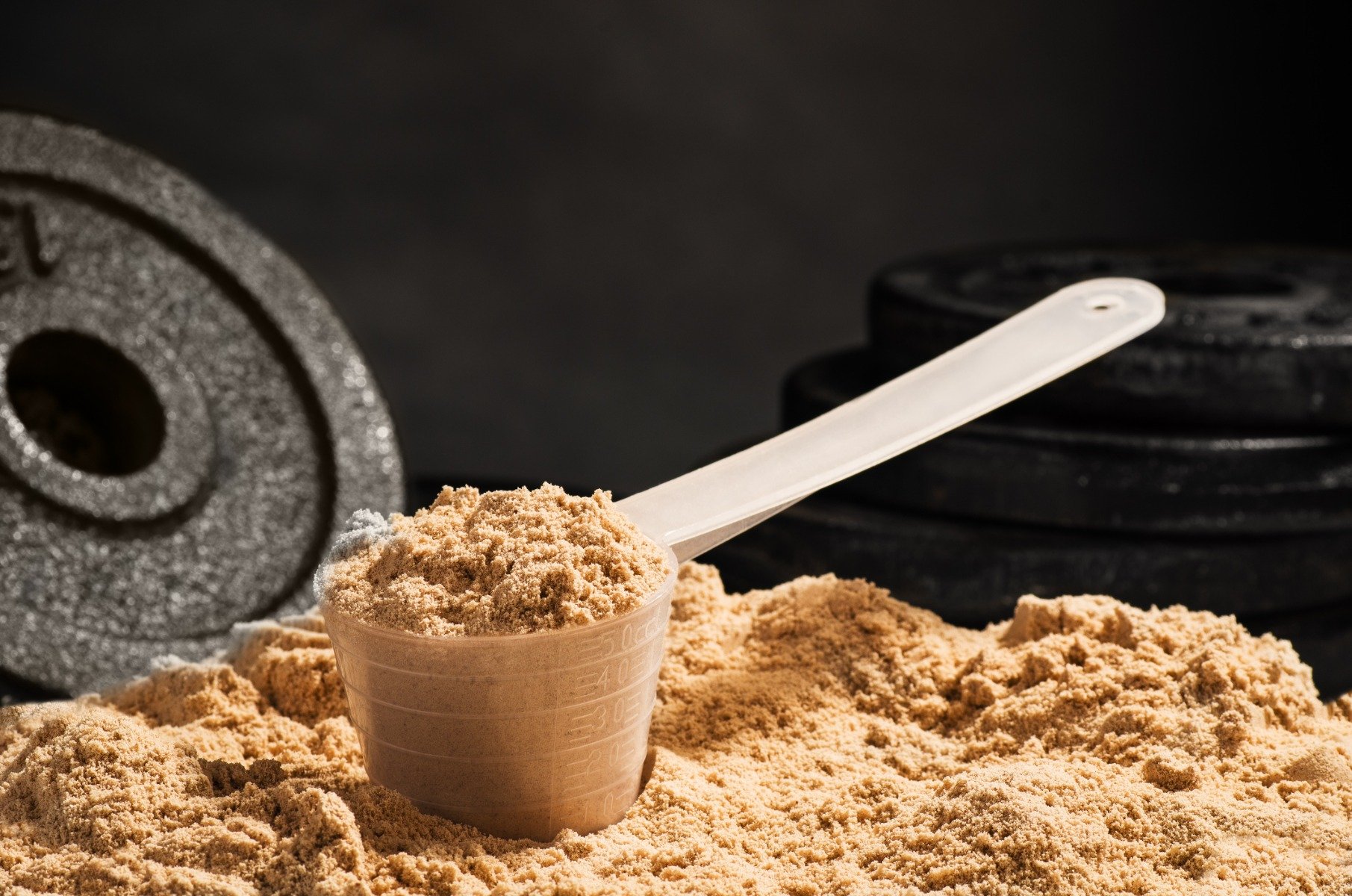
2. Casein
Milk contains two kinds of protein predominantly – casein and whey. Casein is a solid fraction of milk and accounts for 80% of milk protein, with the remaining 20% being whey. Casein protein, also called nocturnal protein is digested slowly, while whey protein is digested quickly.
Slow-release protein means that protein enters the bloodstream gradually, allowing the body to profit from the benefits of casein protein over a longer period of time. Therefore, casein is recommended to be taken before bedtime or during the day and whey protein immediately after strength training. Moreover, because a body digests it more slowly, it makes you feel full. [7] [9] Just like other animal proteins, casein is a complete source of protein. [8] [9]
Read more about casein and its benefits in our article Casein, Casein Proteins and everything you need to know about them.
3. Egg Protein
Just like all animal products, eggs are a complete source of protein too. That is, they provide all nine essential amino acids and additionally, they have a high content of leucine. This amino acid promotes the growth and regeneration of skeletal muscles and contributes to the regulation of sugar in the blood. [10]
Egg Protein is the second largest source of amino acids lysine and BCAA, right after the whey protein. Egg protein consumption is an excellent alternative for people with lactose intolerance who cannot take milk proteins. [11]
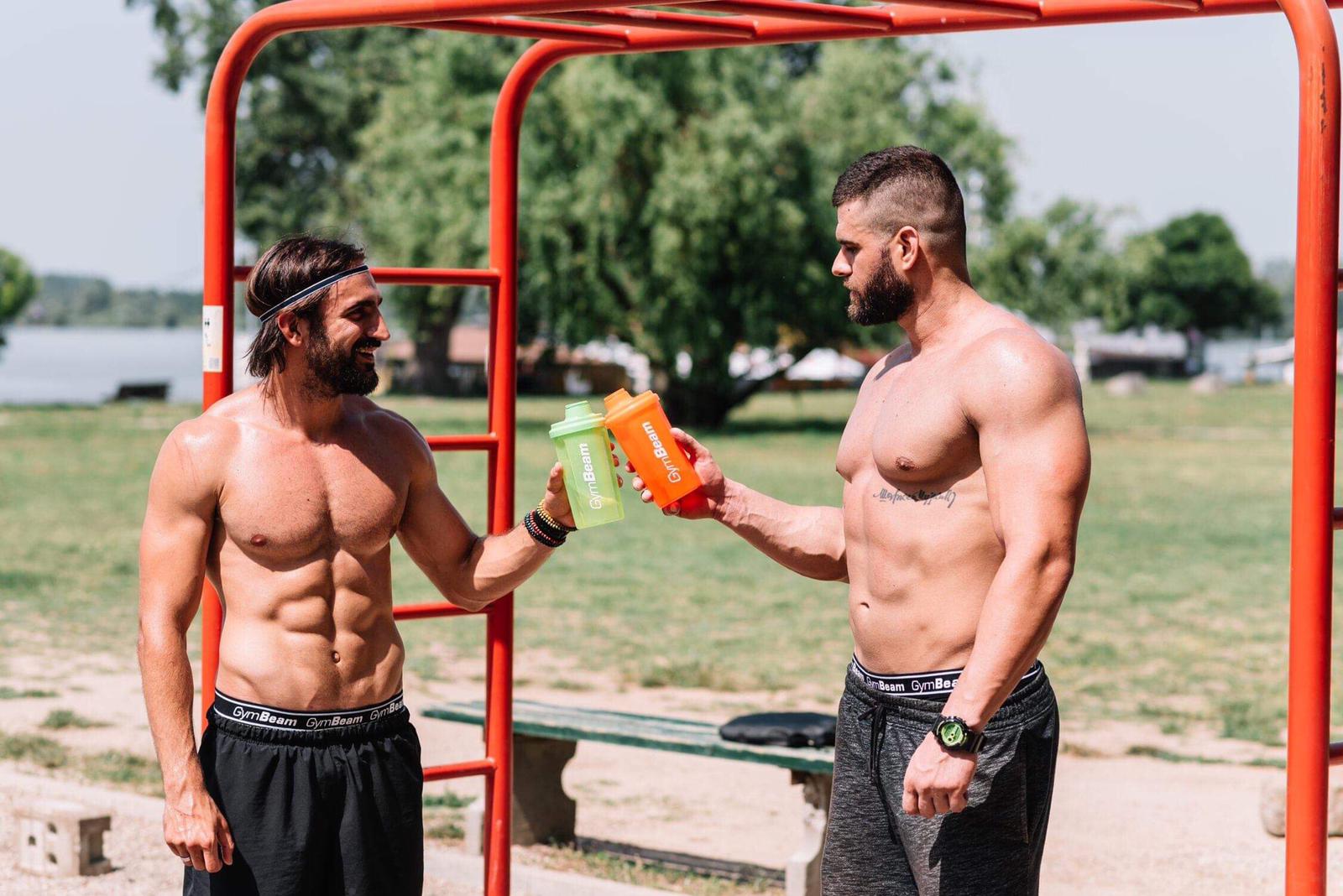
Vegan Proteins
Generally, vegans do not consume any animal products. They do not eat meat, milk, eggs, and so they never consume whey, casein and egg proteins. Fortunately, there are many types of protein powders that are also suitable for vegans. Which are they?
1. Soy Protein
Soy protein contains all 9 essential amino acids, including a high proportion of BCAA, making it a complete protein. It also contains many beneficial plant compounds that can contribute to a healthy diet and help reduce cholesterol. [20]
It is produced by leaching of soybeans, which removes carbohydrates and increases the glutamine ratio. This amino acid helps prevent muscle overload by removing lactic acid from the body. Soy protein is useful during reducing diets because it has almost zero carbohydrate content. [20]
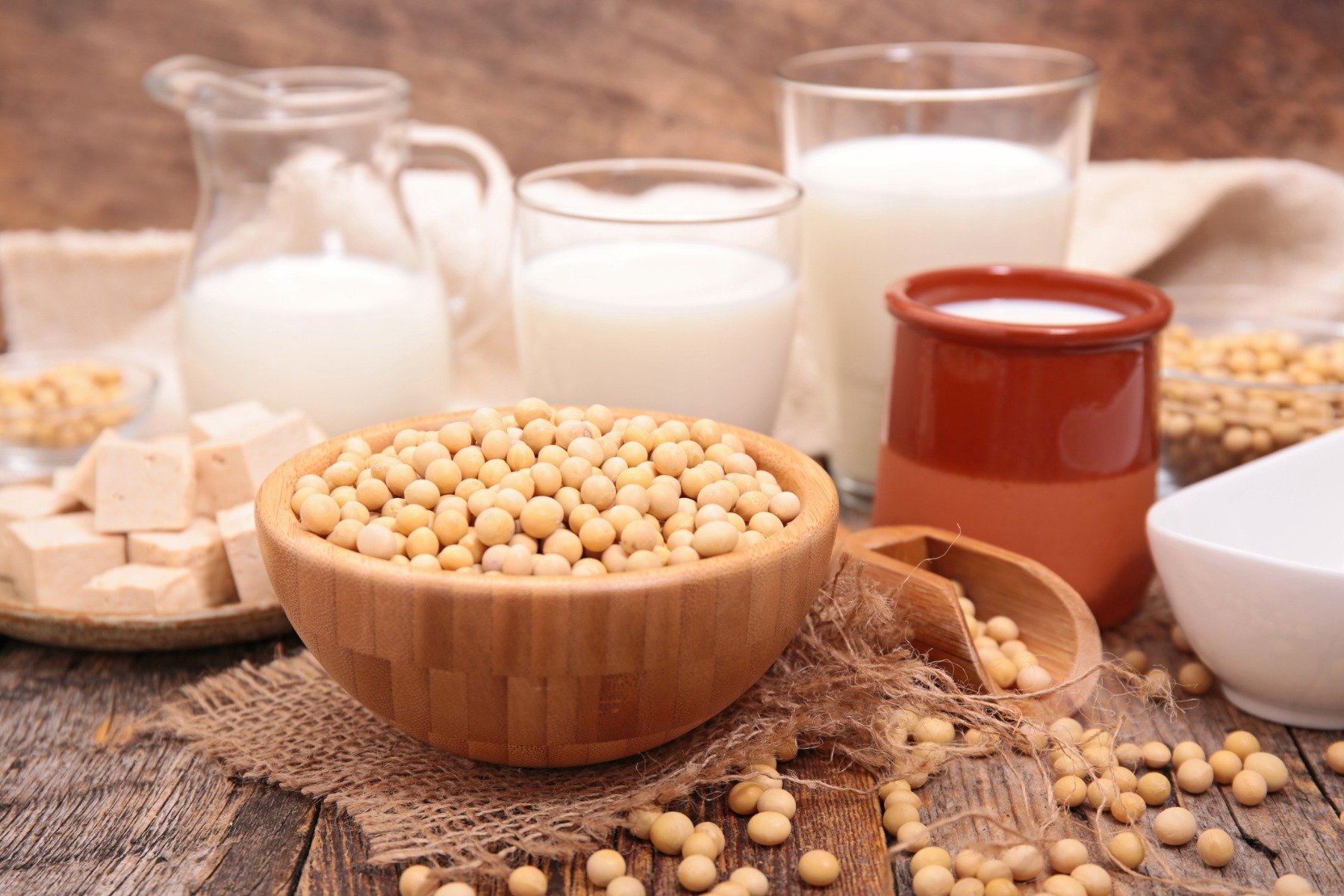
2. Quinoa Protein
Quinoa is generally considered to be a great source of fibre, protein, vitamin B and iron. It is also one of the complete sources of protein. As the only protein made from grains, it contains more lysine than any other plant protein source. Lysine is important for building muscle mass and improving sports performance. [21]
Grains from quinoa can help to lower cholesterol and potentially mitigate the risk of some cancers of the gastrointestinal tract, such as colon cancer. [30]
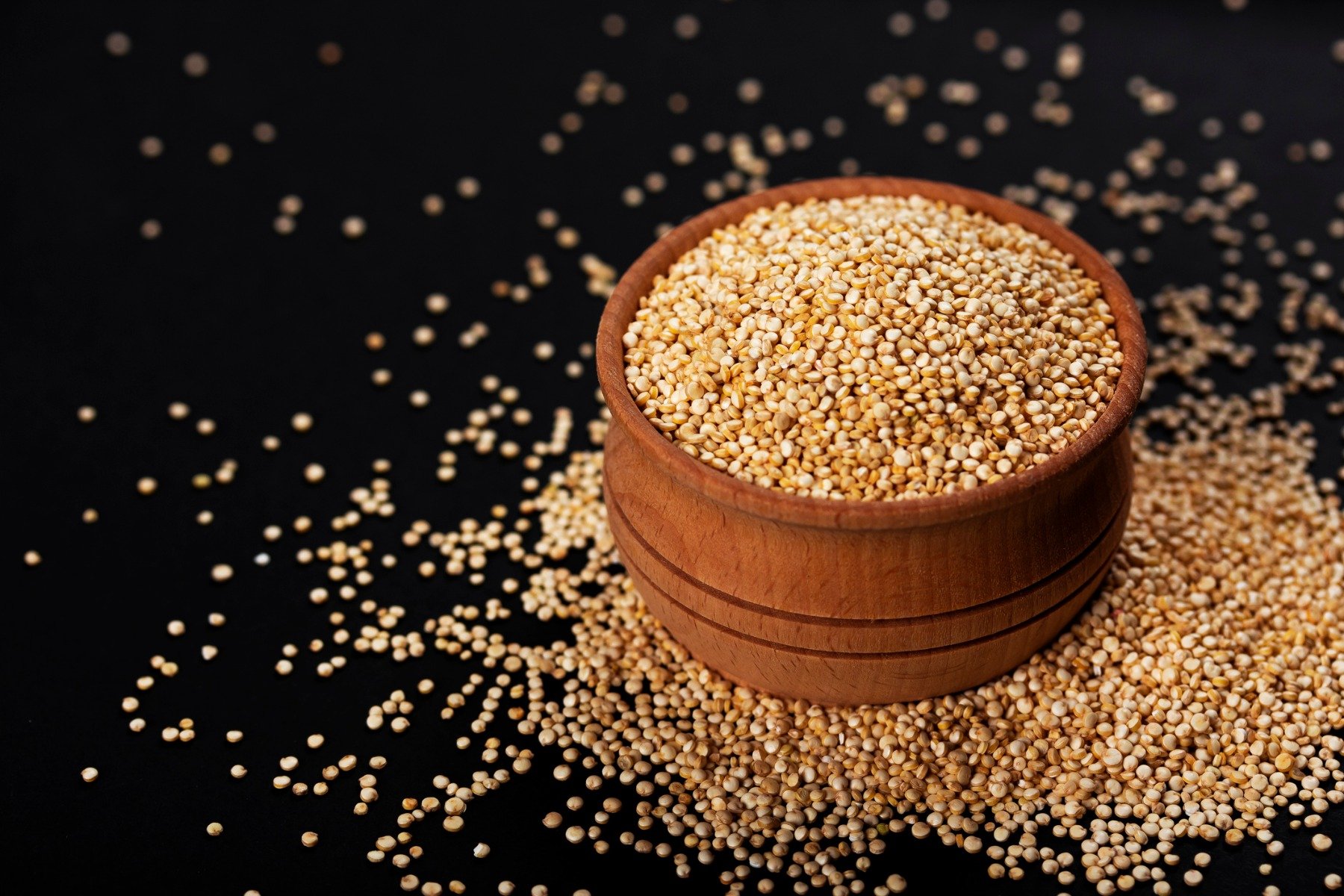
3. Pea Protein
Pea protein is especially rich in the essential amino acids leucine, isoleucine and valine, which promote muscle regeneration. However, like other pulses, it has a low content of the essential amino acid methionine, which helps to degrade cholesterol and reduces fat content in the kidneys and liver. [14] [25]
During the 3-month study, young men aged 18-35 were divided into two groups. The first group received 25 grams of pea protein in the morning and after strength training, and the second group received a placebo. Men who consumed pea protein showed the biceps increase by 20% compared to only 8% in the placebo group. [14] The same study has also shown that pea protein promotes a feeling of satiety. [15]
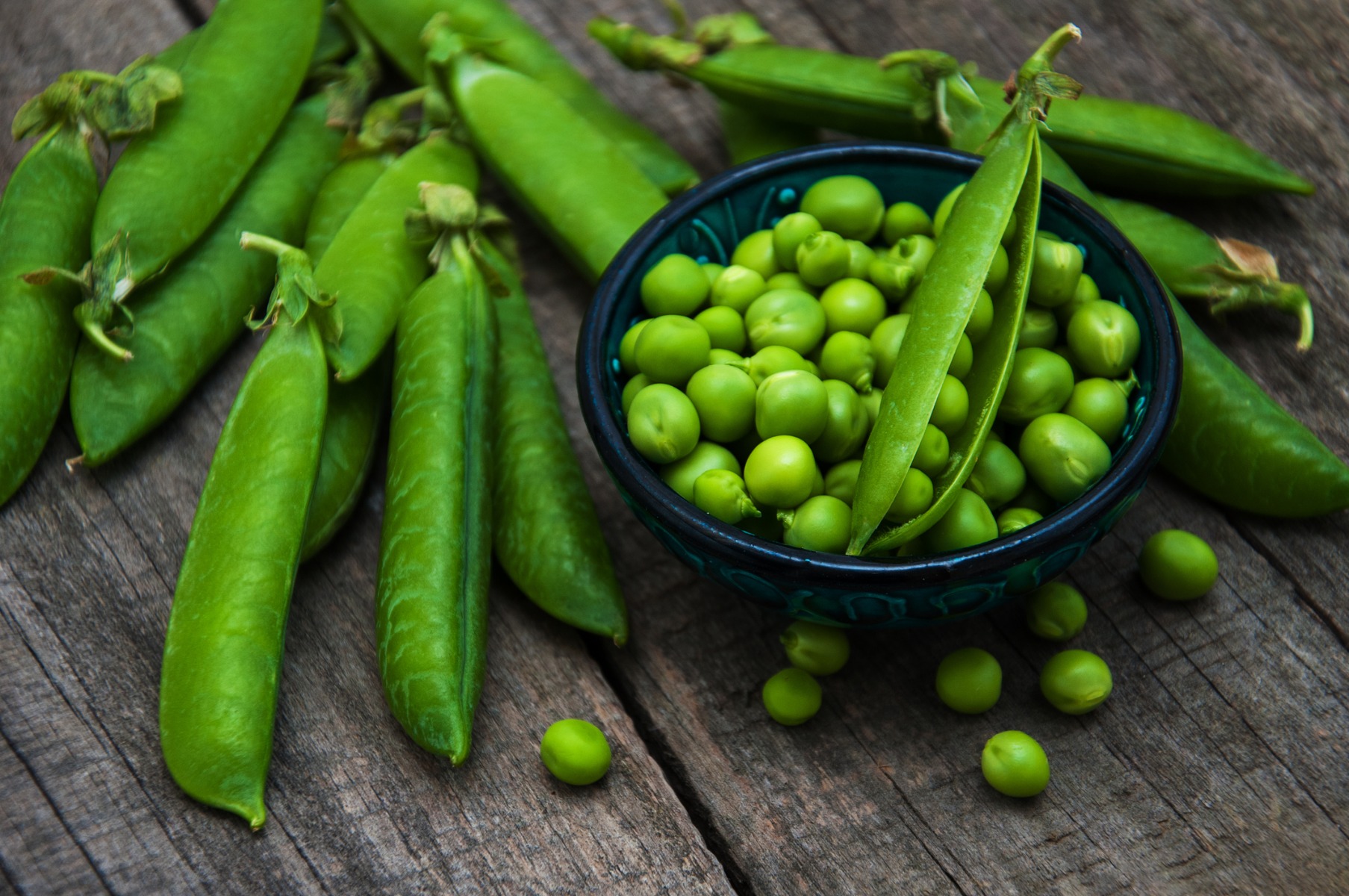
4. Hemp Protein
Hemp protein is produced from the seeds of the hemp plant, but from a sort that contains only small amounts of the tetrahydrocannabinol compound (THC). This means that it cannot cause narcotic and hallucinogenic conditions. [16]
The hemp plant is an excellent source of protein, essential amino acids, fibre, iron and magnesium. It is the high fibre content that makes it extraordinary because it promotes a healthy diet and ensures a feeling of satiety. However, hemp protein powder cannot be considered a complete protein since it does not contain the lysine amino acid. [26] [11] [16]
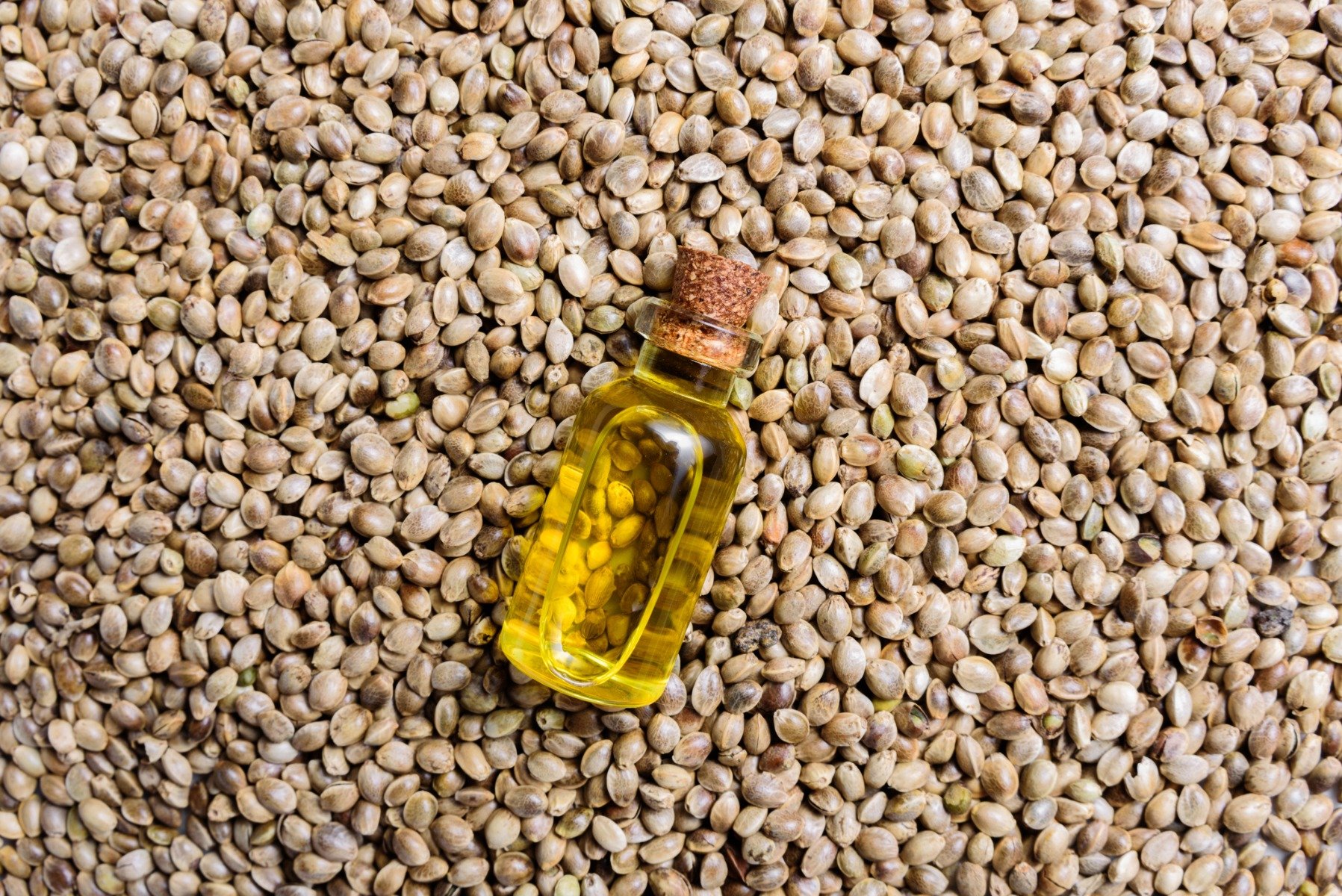
5. Rice Protein
Brown rice offers slightly more protein than white rice, so most rice proteins are made by grinding brown rice grains. The protein rice powder has a low lysine content but it is a good source of BCAA. [18]
In a 2-month study, 30-year-old men received 48 grams of rice protein 3 times a day, even immediately after training. The diameter of their biceps increased by 12%. This is the same as with men who consumed 48 grams of whey protein under the same conditions. [19] This study demonstrates that rice protein can be as great a source for muscle growth as whey protein.

6. Pumpkin Protein
Pumpkin seeds have a relatively high protein content. Processing them into powder removes most of the fat, reducing the calorie content. Therefore, it is recommended to take pumpkin protein during low-calorie weight-reducing diets. However, it does not contain the essential amino acids threonine and lysine and therefore it is not a complete protein. [17]
Pumpkin seeds are one of the best natural sources of magnesium. They also contain large amounts of antioxidants, including vitamin E, which strengthen the walls of blood vessels and support the body’s immunity. [17] [27] Consumption of pumpkin seeds provides a body with a large number of healthy fats and zinc. For this reason, pumpkin seeds have been associated with several health benefits. They help to improve the health of the heart, prostate and protect the body from certain types of cancers. [27]

7. Sunflower Protein
Sunflower seeds are a great way to consume protein. They contain a high proportion of proteins and fibre to aid digestion, lower cholesterol and maintain satiety. [28]
Sunflower protein provides a high proportion of BCAA for muscle building but contains a low amount of lysine. To improve its level, the sunflower protein is combined with protein from quinoa or soy, which belong to the group of complete proteins. [22]
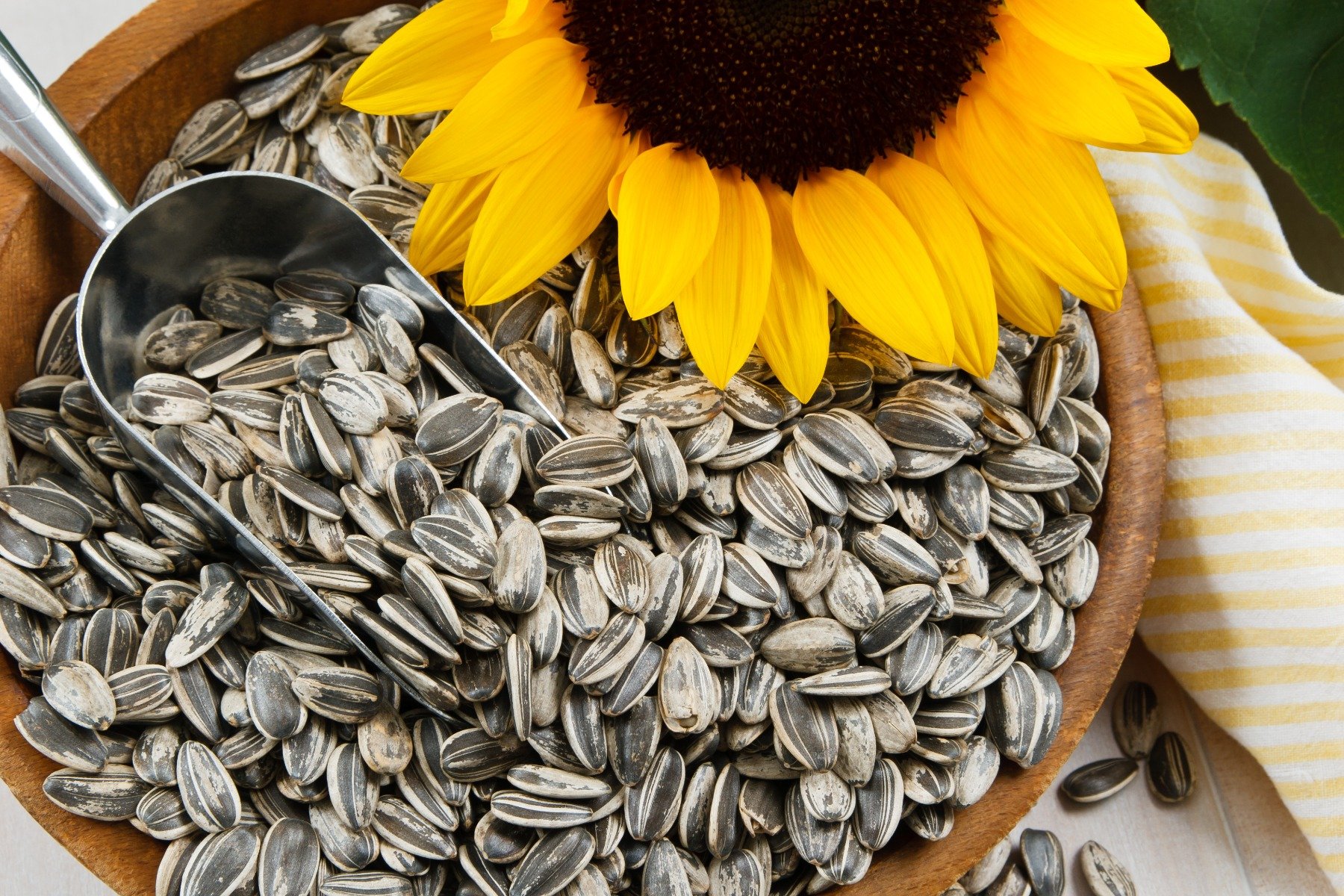
8. Sacha Inchi Protein
Sacha Inchi is a vine that grows naturally in the Peruvian rainforest areas. The vine produces star-shaped fruit that does not contain the necessary nutrients. On the contrary, its seeds are a great source of protein, and that’s why they are used to make protein powder. However, due to its exotic origin, it is less available and more expensive than other plant proteins. [23]
Sacha inchi seeds are a good source of the essential amino acid arginine, which is used to produce nitric oxide. It helps to widen the arteries, thus improves the blood flow and lowers blood pressure. [23] [31] For more on arginine, read our article Arginine and its 8 Verified Health Benefits and Benefits for Athletes.
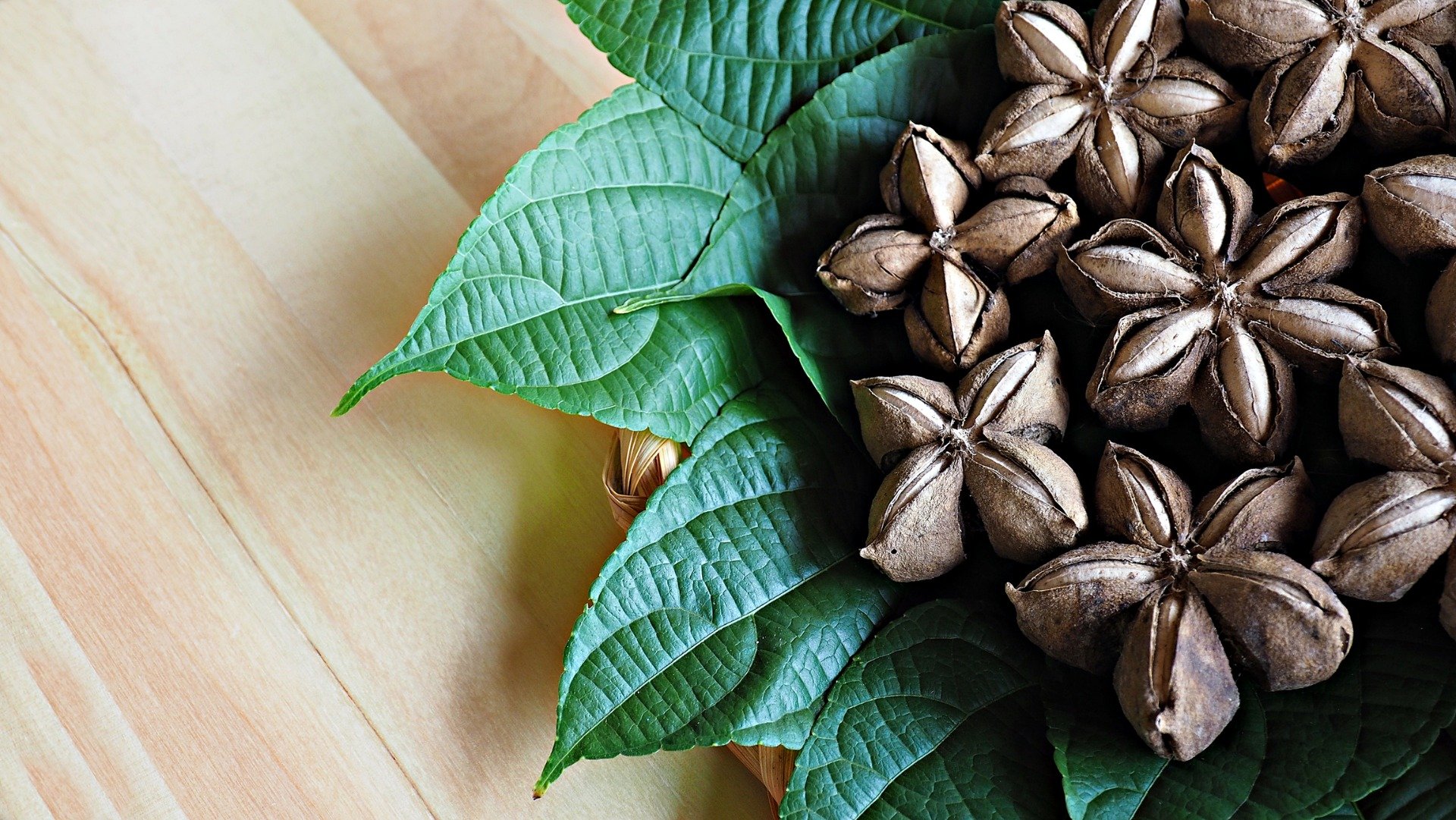
9. Chia Protein
Chia seeds come from a plant called Salvia hispanica, originally from South America. These seeds offer all nine essential amino acids and are therefore a high-quality source of plant protein. [24] However, compared to soy protein, which is also a complete protein source, chia protein contains significantly less protein. However, it has a higher amount of fibre, which makes you feel more saturated when you eat it. In addition, it is full of vitamins and minerals, including biotin, which helps turn food into energy. [13] [24]
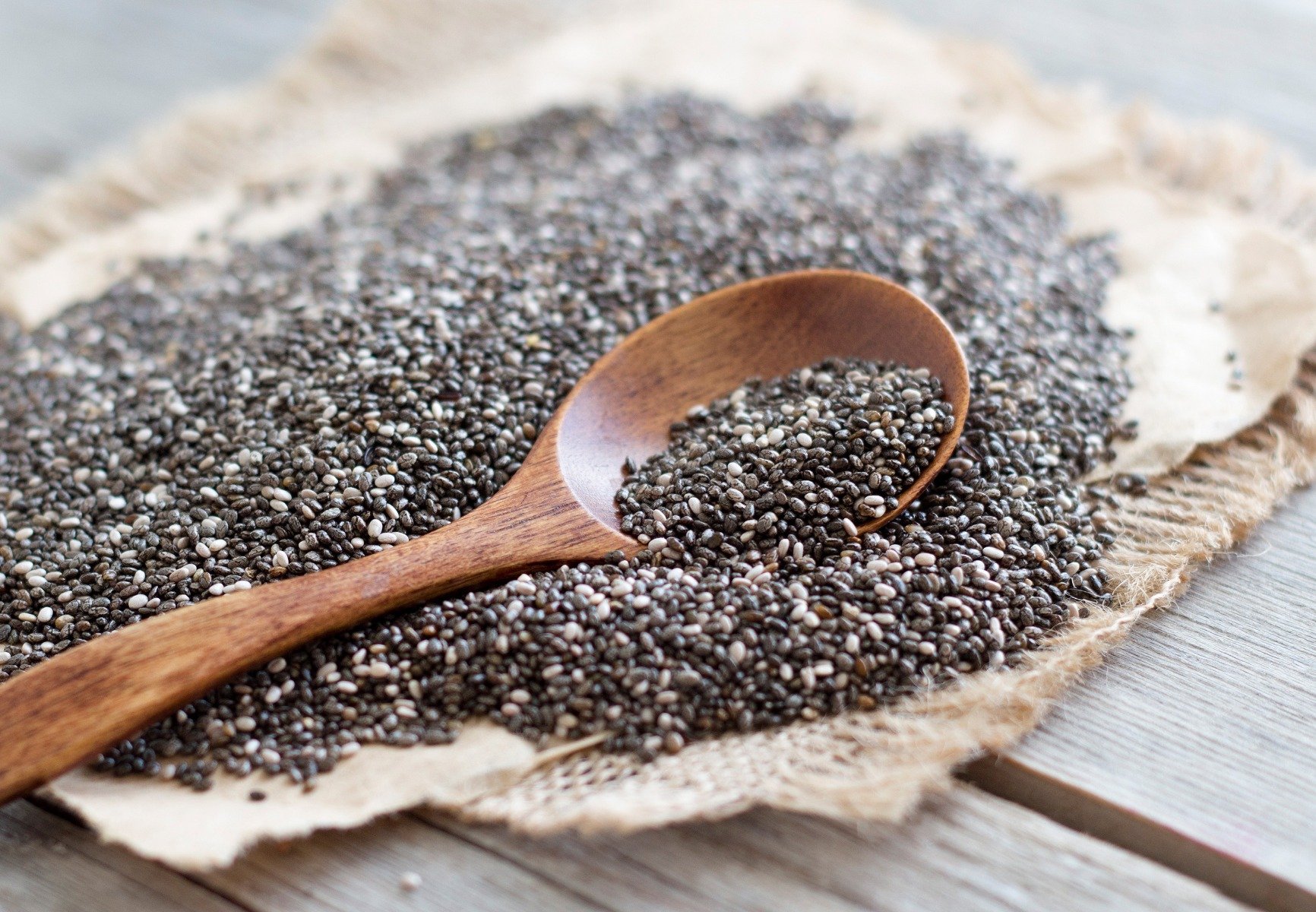
10. Multi-component Plant Protein
Individual plant proteins cannot provide all the essential amino acids, because of that manufacturers combine them and sell them as multi-component vegan proteins. For example, complete proteins from soy or quinoa are commonly used in combination with other plant proteins. [21]
Therefore, read the label of your vegan protein to see if it contains all 9 essential amino acids. For example, our Bio vegan protein is a great protein supplement containing pea, rice and hemp protein. A mixture of these proteins supplies the body with all the essential amino acids to support muscle growth and regeneration on a vegan diet.
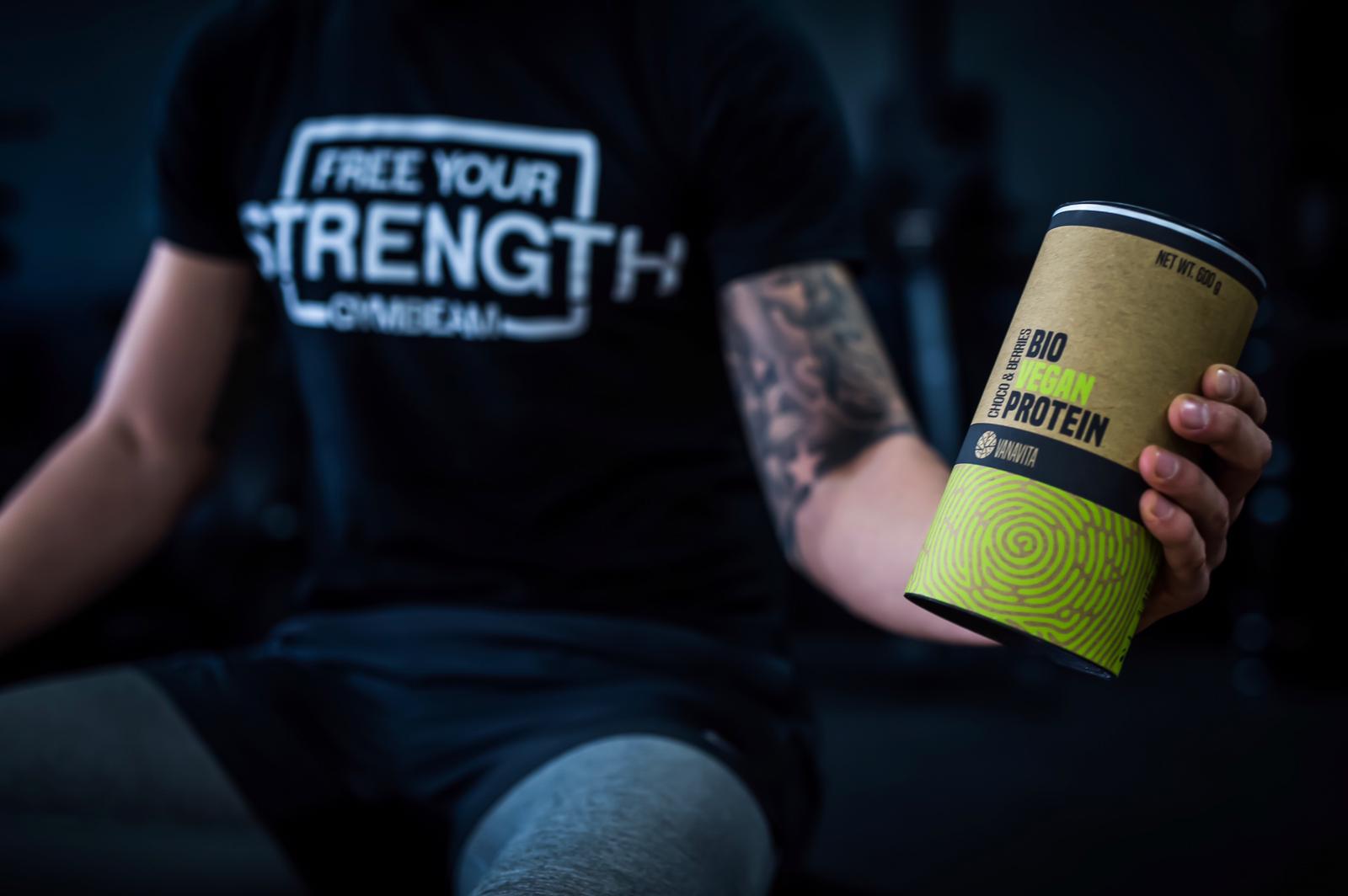
In this article, we looked at types of vegan and vegetarian proteins and we discussed their benefits. We have prepared a summary of vegan and vegetarian plant proteins based on their content of protein and calories in the table under this article. It will also tell you whether a certain protein is a complete protein or not. [13]
| Soy protein | 22 g | 95 kcal | yes |
| Rice Protein | 22 g | 107 kcal | no |
| Pea Protein | 21 g | 100 kcal | no |
| Pumpkin Protein | 18 g | 103 kcal | no |
| Sacha inchi Protein | 17 g | 120 kcal | no |
| Sunflower Protein | 13 g | 91 kcal | no |
| Hemp Protein | 12 g | 108 kcal | no |
| Chia Protein | 10 g | 50 kcal | yes |
| Quinoa Protein | 10 g | 113 kcal | yes |
What is your favourite vegetarian or vegan protein? Share your experience with these proteins and let us know in the comments. We believe you have learned everything you need to know about plant proteins. If you liked the article, be sure to support it with like and sharing.
[1] Melina V - Position of the Academy of Nutrition and Dietetics: Vegetarian Diets. – https://www.ncbi.nlm.nih.gov/pubmed/27886704
[2] Lauren Mazzo - Could Vegan Protein Be Just As Effective As Whey for Building Muscle? – https://www.shape.com/healthy-eating/diet-tips/vegan-protein-effective-whey-building-muscle
[3] Craig WJ - Position of the American Dietetic Association: vegetarian diets. – https://www.ncbi.nlm.nih.gov/pubmed/19562864
[4] Kris Gunnars, BSc - Whey Protein 101: The Ultimate Beginner's Guide – https://www.healthline.com/nutrition/whey-protein-101
[5] Atli Arnarson - 10 evidence-based health benefits of whey protein – https://www.healthline.com/nutrition/10-health-benefits-of-whey-protein
[6] Krissy Kendall - Your expert guide to whey protein – https://www.bodybuilding.com/content/your-expert-guide-to-whey-protein.html
[7] Gavin Van De Walle, MS, RD - What's the Difference Between Casein and Whey Protein? – https://www.healthline.com/nutrition/casein-vs-whey
[8] Rudy Mawer, MSc, CISSN - Why Casein Is One of The Best Proteins You Can Take – https://www.healthline.com/nutrition/casein-protein-is-highly-underrated
[9] Kamal Patel - Casein protein - https://examine.com/supplements/casein-protein/]
[10] Adda Bjarnadottir, MS - How Much Protein in an Egg? – https://www.healthline.com/nutrition/protein-in-egg
[11] Schaafsma G - The protein digestibility-corrected amino acid score. – https://www.ncbi.nlm.nih.gov/pubmed/10867064
[12] Franziska Spritzler, RD, CDE - The 7 Best Types of Protein Powder – https://www.healthline.com/nutrition/best-protein-powder
[13] https://ndb.nal.usda.gov/ndb/search/list
[14] Babault N - Pea proteins oral supplementation promotes muscle thickness gains during resistance training: a double-blind, randomized, Placebo-controlled clinical trial vs. Whey protein. – https://www.ncbi.nlm.nih.gov/pubmed/25628520
[15] Smith CE - The effect of yellow pea protein and fibre on short-term food intake, subjective appetite and glycaemic response in healthy young men. – https://www.ncbi.nlm.nih.gov/pubmed/22916818
[16] Tang CH - Physicochemical and functional properties of hemp (Cannabis sativa L.) protein isolate. – https://www.ncbi.nlm.nih.gov/pubmed/27886704
[17] Rezig L - Pumpkin (Cucurbita maxima) seed proteins: sequential extraction processing and fraction characterization. – https://www.ncbi.nlm.nih.gov/pubmed/23869935
[18] Kalman DS - Amino Acid Composition of an Organic Brown Rice Protein Concentrate and Isolate Compared to Soy and Whey Concentrates and Isolates. – https://www.ncbi.nlm.nih.gov/pubmed/28234326
[19] Joy JM - The effects of 8 weeks of whey or rice protein supplementation on body composition and exercise performance. – https://www.ncbi.nlm.nih.gov/pubmed/23782948
[20] Rizzo G - Soy, Soy Foods and Their Role in Vegetarian Diets. – https://www.ncbi.nlm.nih.gov/pubmed/29304010
[21] Megan Ware RDN LD - Health benefits of quinoa – https://www.medicalnewstoday.com/articles/274745.php
[22] Guo S - A review of phytochemistry, metabolite changes, and medicinal uses of the common sunflower seed and sprouts (Helianthus annuus L.). – https://www.ncbi.nlm.nih.gov/pubmed/29086881
[23] Gonzales GF - Nitrogen balance after a single oral consumption of sacha inchi (Plukenetia volúbilis L.) protein compared to soy protein: a randomized study in humans. – https://www.ncbi.nlm.nih.gov/pubmed/28854833
[24] Sandoval-Oliveros MR - Isolation and characterization of proteins from chia seeds (Salvia hispanica L.). – https://www.ncbi.nlm.nih.gov/pubmed/23240604
[25] https://www.webmd.com/vitamins/ai/ingredientmono-42/methionine
[26] Erica Julson, MS, RDN, CLT - Hemp Protein Powder: The Best Plant-Based Protein? – https://www.healthline.com/nutrition/hemp-protein-powder#protein
[27] Marsha McCulloch, MS, RD - Top 11 Science-Based Health Benefits of Pumpkin Seeds – https://www.healthline.com/nutrition/11-benefits-of-pumpkin-seeds
[28] Marsha McCulloch, MS, RD - Are Sunflower Seeds Good for You? Nutrition, Benefits and More – https://www.healthline.com/nutrition/sunflower-seeds
[29] Adda Bjarnadottir, MS -Quinoa 101: Nutrition Facts and Health Benefits – https://www.healthline.com/nutrition/foods/quinoa
[30] https://www.webmd.com/vitamins/ai/ingredientmono-237/lysine]
[31] Gavin Van De Walle - 5 Ways to Increase Nitric Oxide Naturally – https://www.healthline.com/nutrition/how-to-increase-nitric-oxide
[32] Gavin Van De Walle, MS, RD - What's the Difference Between Casein and Whey Protein? – https://www.healthline.com/nutrition/casein-vs-whey


Add a comment